

THIS PROGRAM WAS MADE POSSIBLE THROUGH THE GENEROUS SUPPORT OF:

SALZBURG GLOBAL SEMINAR IS ALSO GRATEFUL TO OUR PROGRAM PARTNER:

SALZBURG GLOBAL SEMINAR WOULD LIKE TO THANK ALL PARTICIPANTS FOR DONATING THEIR TIME AND EXPERTISE TO THIS PROGRAM.




THIS PROGRAM WAS MADE POSSIBLE THROUGH THE GENEROUS SUPPORT OF:

SALZBURG GLOBAL SEMINAR IS ALSO GRATEFUL TO OUR PROGRAM PARTNER:

SALZBURG GLOBAL SEMINAR WOULD LIKE TO THANK ALL PARTICIPANTS FOR DONATING THEIR TIME AND EXPERTISE TO THIS PROGRAM.

MAY 8 TO 10, 2024
Session 847-01
RAPPORTEUR
Derek Alton
PROGRAM DIRECTOR Charles E. Ehrlich
Editor Audrey Plimpton
Photos Jon Cottam
Cover Image Shutterstock
Retreat Location Hartwell House, Vale of Aylesbury, United Kingdom
PROGRAM MANAGER Kateryna Anselmi
Japan:
Republic of Korea: Global Cooperation for a Just Transition
Estonia: Building Blocks and Minilateralism
Indonesia: Small and Medium Enterprises as an Enabler
France: National Vision, Local Implementation
South
South
The current global landscape is marked by a permanent polycrisis where climate change, geopolitical tensions, economic challenges, mass migration, and technological disruptions intersect, creating continuous and multifaceted crises. These complex issues impact the future of education, work, health, and even the fundamental structure of the state itself. Governments must now navigate these overlapping crises while addressing long-term challenges. How are citizens’ expectations of the public, private, and civil sectors evolving in such a context? How should local and national governments balance their roles? What skills and ideas do public servants need to design resilient and adaptive policies? What opportunities for transformative policy and leadership emerge in this new normal?
The Public Sector Strategy Network’s annual invitation-only retreat enables senior public sector leaders to speak openly among peers about the major disruptive forces confronting governments today. This year’s retreat focused on developing strategies to navigate the permanent polycrisis, leveraging behavioral insights, strategic foresight, and innovative governance. Participants compared experiences in off-the-record conversations, discussing how their respective institutions address these complex challenges and sharing concrete lessons to enhance their leadership structures and public service resilience.
The Annual Foresight Retreat is held under the Chatham House Rule, which has been adhered to in this report, with all attribution provided with approval.
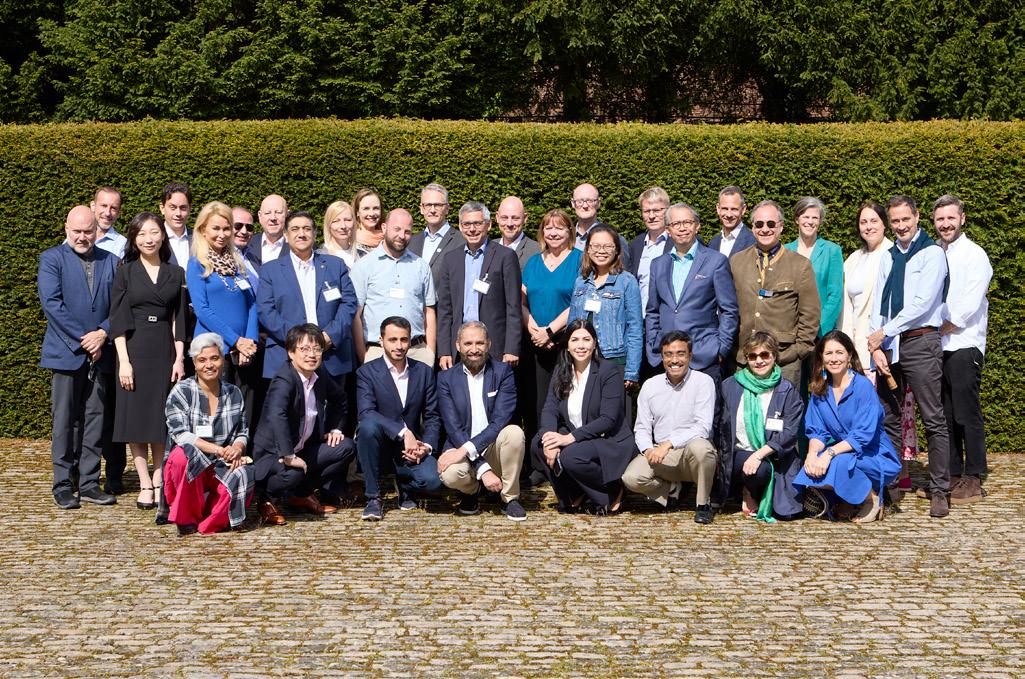
The Public Sector Strategy Network’s Annual Foresight Retreat, held in May 2024 at Hartwell House, brought together senior public service leaders from across the globe. Set against the tranquil backdrop of the English countryside, the retreat provided an ideal environment for thoughtful and strategic conversations. Attendees delved into today’s complex global issues, including climate change, geopolitical instability, economic turbulence, and technological upheavals.
This report provides an overview of the retreat, capturing common themes and critical highlights. It encapsulates the diverse discussions and insights from the event, which centered on addressing the permanent polycrisis by utilizing behavioral insights, strategic foresight, and pioneering governance approaches. The following three overarching themes emerged throughout the retreat.
Shifting Geopolitical Landscape: A new Cold War has arisen, putting pressure on governments worldwide as each side strives to entrench its value system in the new world order. In this context, unaligned powers have become particularly important as kingmakers in this conflict. Chief among them is India, which came up multiple times. Instead of picking sides, many of these unaligned powers are playing both groups off of each other for their own goals.
Demographic Decline: Slowing demographics pressures governments to rethink their approach to population growth. Countries like the Republic of Korea and Japan anticipate a massive reduction in their workforce in the coming decades, which will pressure their ability to maintain a high standard of living. Though this dynamic is most acutely felt in
East Asia, similar patterns are also starting to emerge in many other countries. In response, technology provides an opportunity to bridge the gap by enabling large productivity jumps.
Increased Interconnectivity: The increased interconnectivity of the polycrisis is forcing governments to collaborate. Governments that historically functioned independently within their jurisdictions are now working together to respond to challenges that cross these boundaries. This collaboration is happening both between countries and within countries across different levels of government. Local governments, in particular, are playing a more prominent role in responding to these challenges as they sit on the front lines.
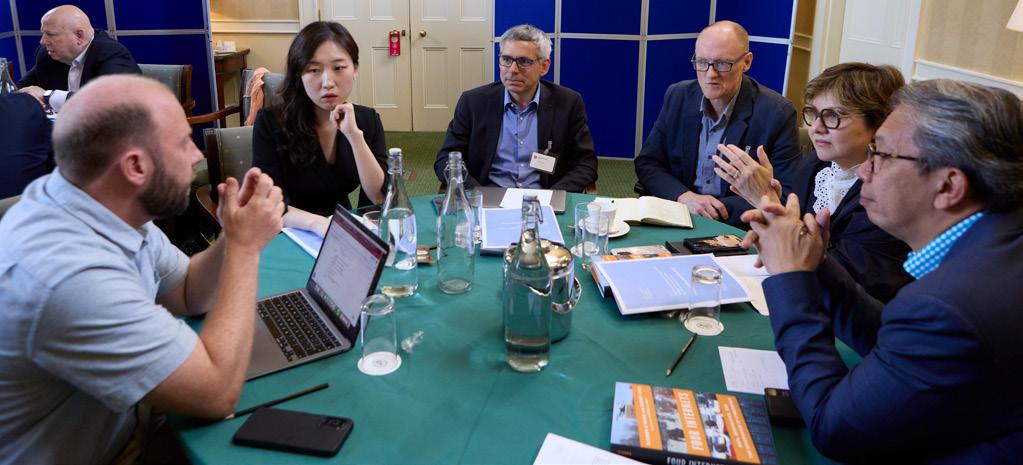
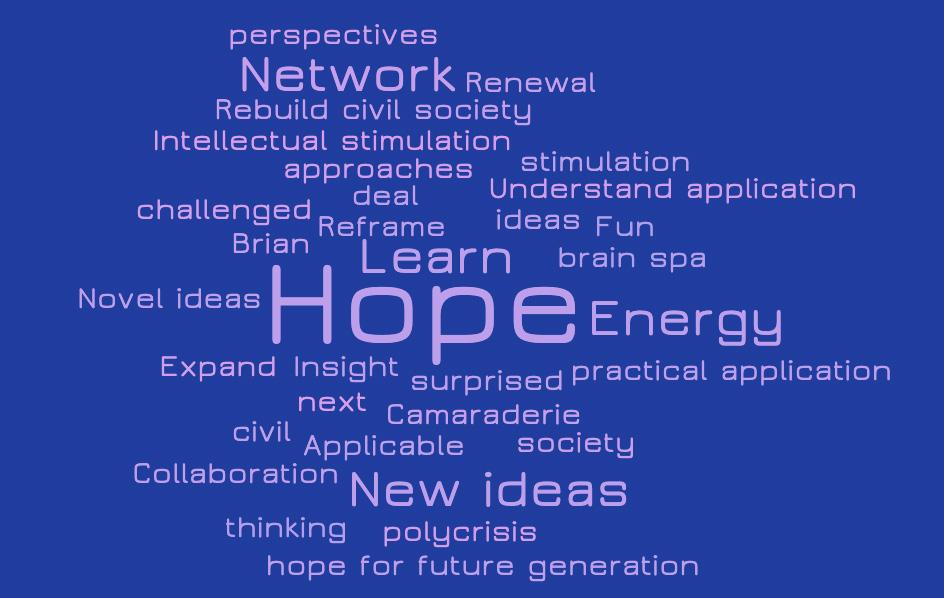
As an icebreaker, participants were asked what they hoped to gain from the retreat. Their responses are reflected in the word cloud above.
The first day of the retreat framed the forthcoming discussions by centering on the shifting geopolitical context, setting the stage for understanding the complex environment that governments are now wrestling with.
The New Cold War: The modern geopolitical climate is defined by a new cold war between the US and China. This rivalry shapes global dynamics as these powers and their allies vie for higher positions. Due to the deeply interconnected nature of the world, this dynamic impacts every aspect of government operations and decision-making; this escalates as the current divisions are rooted in unbridgeable ideological positions. This new Cold War undermines
collective efforts to address global challenges by fostering a zero-sum game mentality. Major powers like China, Russia, and the US also face internal insecurities, complicating collective action and fostering inconsistencies and double standards. The situation calls for frameworks that enable economic collaboration and competition, particularly through strengthening North-South partnerships. However, unlike the last Cold War, unaligned powers wield more significant influence this time. They are playing the two sides off each other to their advantage, making countries like India pivotal in shifting power dynamics.
This Book Talk was inspired by Sir Robin Niblett’s “The New Cold War”.
• Reflections on war in a new epoch
• Muddling through to 2030: The long decline of international security cooperation
The State of the Internet and AI: The Internet, now 50 years old, and the World Wide Web, which began in 1989, have become the modern infrastructure for the world. They were initially envisioned as open spaces for innovation. However, over time, four distinct models of the Internet have emerged:
• Silicon Valley Open Internet: Characterized by first-mover advantage, tech-driven solutions, endto-end principles (e.g. Internet Protocols and Net Neutrality), and rapid innovation.
• Brussels Bourgeois Internet: Focuses on ethics, privacy, competition law, and preemptive harm neutralization, as GDPR exemplifies.
• Beijing Paternal Internet: Emphasizes stability, top-down control, and alignment between companies and the government.
• DC Commercial Internet: Comprises closed, company-controlled networks (e.g. Google, Microsoft, and Facebook) with fragmented user experiences and reduced interoperability significantly.
India is pivotal as a “swing state” in determining the future balance of internet values, especially given recent geopolitical pressures like the war in Ukraine. While the Internet serves as an infrastructure, AI is emerging as a product or service; the push for regulation is similarly lagging, as shown by how the advent of technologies like ChatGPT rose to public consciousness and political pressure. The development of AI is mirroring the four internets model above.
This Book Talk was inspired by Dame Wendy Hall’s “Four Internets”.
• Learn more about how Apolitical is launching global communities of practice for governments with partners all over the world.
• How to Be a Resilient Public Servant
• How to combat burnout in the public service
• Lessons from practice - Creating an infrastructure for building policy capability
As the world faces a “polycrisis” that is now considered the new normal, governments need to become agile, resilient, and innovative.
Public servants are overwhelmed with increased workloads and cognitive fatigue, highlighting the importance of organizational health and agility. Climate change and AI are transforming government work, requiring a whole-of-government approach to many of today’s challenges. AI is also opening the door for big productivity steps but it must be adopted consciously and carefully.
Governance structures need refreshing to manage cross-ministerial boundaries and rapid adoption and scaling of good practices. Changes could include shifts to building “minilateralism” where allies collaborate on common goals.
APOLITICAL RESOURCES
• Government AI Campus
• Balancing AI innovation with ethics in government
• Understanding how AI impacts you and your government
• Shaping the future: Governing the generative AI revolution
• Community of Practice: AI in Government
In a world overwhelmed with static content that AI can generate at the click of a button, the dynamic community is becoming more critical in helping cut through the noise and identify what is essential. Communities of practice can serve as a nexus for adaptive and emergent learning in response to an ever-changing world.
All of this requires rethinking the treatment and support for the largest workforce in the world, namely public servants, in order to enhance their capacity and resilience in a polycrisis world.
The “Parable of the Meatloaf” helped to inspire constant questioning of norms and practices:
Once upon a time, in a cozy village, a mother was teaching her daughter the family recipe for meatloaf. As they prepared the dish together, the mother shared the family secret: “Always cook the meatloaf with the oven door slightly open.”
Curious, the daughter asked, “Why do we leave the oven door open?”
The mother replied, “That’s how we’ve always done it to get the best meatloaf.”
Unsatisfied with the answer, the daughter pressed further, “But why?”
The mother, unsure herself, decided to ask her own mother. They visited the grandmother, who was also unsure, and together they visited the great-grandmother. When they asked the great-grandmother about the tradition, she chuckled and said, “Oh, we used to have a small oven. The pan was too big to fit properly, so we had to leave the door open. That’s the only reason.”
The family laughed, realizing that the reason for their cherished tradition was no longer relevant.
Moral: Sometimes, traditions persist long after their original context has been forgotten, and it’s worth questioning if they still serve a purpose.
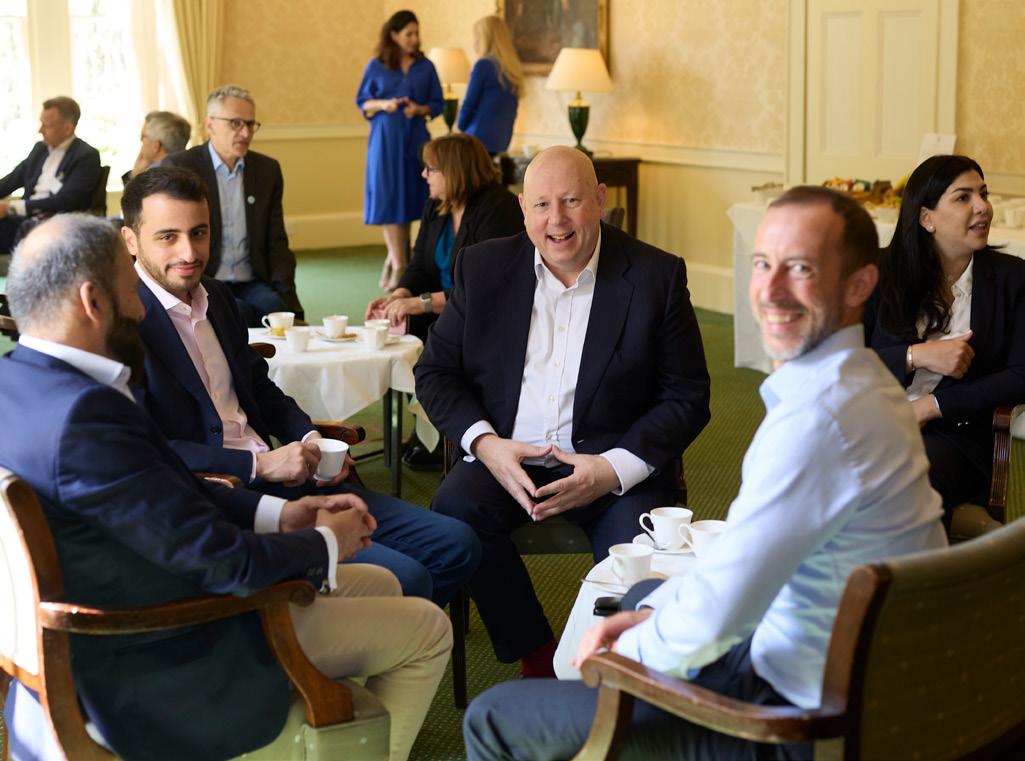
On the first evening, a debate was held about how science should be included in policymaking, and, specifically, the role of the Chief Science Adviser.
The first position was that the increasing complexity of policy issues requires new institutions to manage the interplay of politics and science. This entails giving more power and accountability to Chief Science Advisors, increasing public involvement, and better synthesizing diverse knowledge types. Chief Science Advisors should not just provide advice but have a greater role in decisionmaking to ensure that scientific considerations are adequately integrated into policies.
The second position highlighted the role of Chief Science Advisors as honest brokers who need to be separated from politics to provide unfiltered scientific advice to policymakers. This distance ensures objectivity and foresight in anticipating future challenges, enabling proactive policy innovation.
The debate explored the dichotomy between science and politics, noting how recent crises have exposed governmental inadequacies. Part of this could be tied to a significant shift of scientific investment to the private sector and dual countervailing trends of global collaboration on one hand (e.g. COVID-19 vaccine research) and a new Cold War putting up barriers on the other.
Additionally, the debate underscored the need for serious consideration of social sciences in policymaking and suggested moving beyond the traditional nation-state model to address global challenges more effectively.
• When science meets power in a pandemic
• 8 strategies to communicate science effectively to policymakers
• Five ways behavioral science can improve regulation
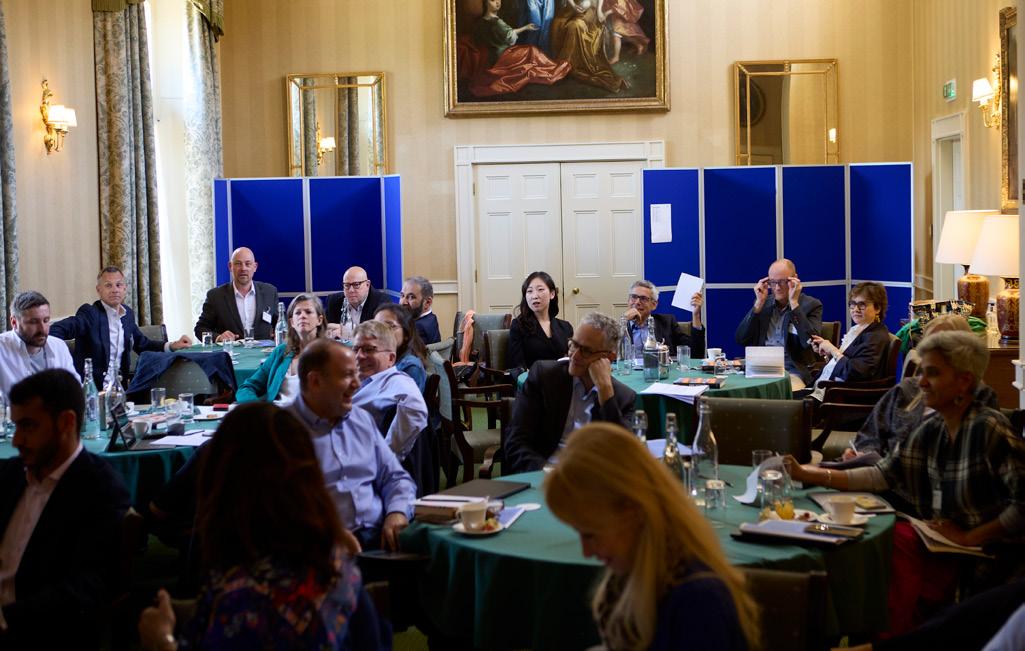
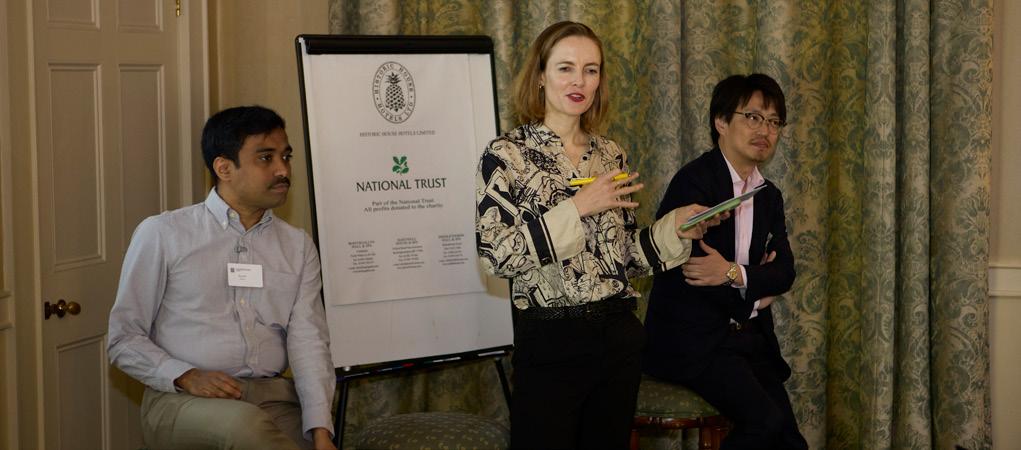
Technological disruptions are a key element of the permanent polycrisis, presenting both significant challenges and vast opportunities. These disruptions reshape societies and governments, requiring curiosity, caution, and adaptability. The retreat explored various aspects of technological disruption, emphasizing the need for effective integration, regulatory reforms, and proactive governance to harness the potential of emerging technologies.
Integrating technology into government was a central focus at the retreat. Digital tools can transform and entrench existing systems, with tech adoption often mirroring organizational structures, as noted by Conway’s Law. There are four main principles to consider when adopting new technologies:
1. Digital Transformation and Entrenchment: Digital technology has the potential to transform government operations but can also entrench existing structures. Acknowledging and addressing legacy systems is essential to effective adoption and adaptation.
2. In-Skilling for Better Procurement: Governments need to enhance skills in both technology and procurement to become better buyers. Knowledgeable buyers are essential for ensuring successful outcomes with vendors.
3. Constant Learning and Adaptation: Continuous learning and adaptation are critical. Governments must manage acute crises like data breaches and ongoing polycrisis, viewing crises as opportunities for resilience and transformation.
4. Good Regulation and Practice: Effective regulation requires a deep understanding and practical use of technology. Regulations should not be created in isolation but should reflect an informed and adaptive approach.
This points to the importance of reigniting public sector skills, embracing continuous learning, and engaging with emerging technologies to enhance governance. This approach ensures that governments remain agile and effective in an evolving digital landscape.
Japan is moving to a goal-based framework and a Government as a Platform (GaaP) model to standardize operations and integrate digital public goods. These steps aim to improve national and local government relations. The aging population, projected to shrink the workforce by 20 million in 20 years, drives this need for efficiency. The Digital Agency leads these reforms, fostering public-private partnerships and open innovation to sustain a high quality of life. The Digital Agency spearheads these reforms, encouraging public-private partnerships and open innovation to drive digital transformation.
Game-changing technologies are just around the corner. How can we be proactive in maximizing their benefits and minimizing their harms? There are several potential central principles:
Artificial Intelligence:
• Ensure clear lines of accountability for AI outputs.
• Shift incentives to encourage the development of AI for the public good.
Space Habitation:
• Penalize actions that harm Earth.
• Make space a public commons, similar to Antarctica.
Advanced Robotics:
• Ensure robots do not harm humans and follow human commands, provided they do not conflict with the first principle; this aligns with Asimov’s three rules of robotics.
• Educate humans on environmental stewardship to prevent a scenario where robots might need to control human actions.
Synthetic Biology:
• Guide synthetic biology research with strong ethical considerations.
• Ensure transparency and regulate permissible research areas.
Quantum Computing:
• Provide qualified universal access to quantum computing.
• Implement risk-based rules for access to ensure responsible use.
Artificial Wombs:
• Assign human responsibility for artificial wombs, preventing corporate ownership and focusing on societal implications.
One of the most interesting conversations during the exercise focused on artificial wombs. The severe demographic crises faced by many countries had already been discussed, which prompted a shift in perspective from individual benefits to societal implications. This raised concerns about a dystopian future where countries might farm people to address population gaps, potentially breeding individuals with specific skills for particular tasks, such as military roles.
• Inclusive disruption: harnessing the social power of technology
• Breaking up tech giants won’t curb their harms. Digital literacy might
• Machine learning ethics: 3 key considerations for government
• Artificial wombs and aging populations
• Following astropolitics? If not, you should be
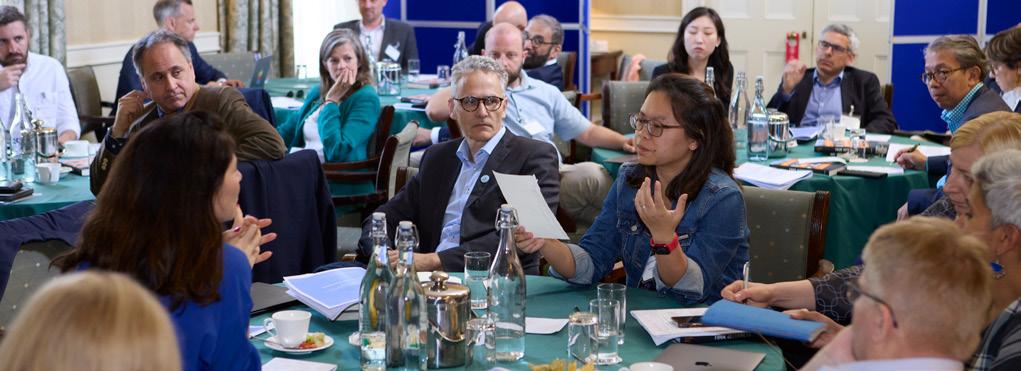
Despite the permanent polycrisis, countries continue to develop and grow, demonstrating resilience and innovation. The following case studies from the Republic of Korea, Estonia, Indonesia, and France illustrate how nations are navigating and overcoming these multifaceted challenges.
The Republic of Korea’s development has been marked by remarkable growth in cultural exports such as music and TV shows. However, it faces geopolitical challenges due to its dependence on trade and its position on the front lines of the new Cold War. Environmentally, the Republic of Korea excels with world-leading recycling practices, massive reforestation efforts, and top-tier electric vehicle adoption and investment. Yet, the green transition demands significant sacrifices, and without global cooperation, the Republic of Korea’s competitiveness could suffer. The transition also lacks fairness and justice, especially between old and new industries. Demographically, the Republic of Korea has the world’s lowest fertility rate, threatening population sustainability, but this challenge could also be reframed as an opportunity to model a successful degrowth economy.
Estonia is modeling a flexible public administration system, likened to “LEGO blocks” that break silos and better implement government goals like the green transition. The reorganization has included the creation of the Ministry of Climate to enable prompt decisionmaking and resource flexibility. Key strategies involve rethinking public servant roles, harmonizing support structures, enhancing change management skills, and improving communication. Estonia has been working to integrate sustainability into current priorities for all departments, fostering a whole of government approach. They are also exploring a “minilateralism” approach to AI adoption through collaboration with other countries in the region to support the pooling of resources towards common goals around shared values.
Urbanizing while tackling climate change involves balancing business needs with community interests, shifting from a government or big business-driven approach to one that includes small entrepreneurs who have historically been cut out of these conversations. Indonesia has positioned itself as a prime destination for entrepreneurship and small and medium enterprise (SME) investment to leverage this opportunity. They have created organizations to serve as the bridge between SMEs and local governments and as knowledge hubs for mayors and regional governments. They maintain a technocratic stance to avoid political entanglements while distributing funds to foster growth and innovation. Entrepreneurs are now helping local governments face capacity issues in supporting and leveraging development opportunities caused by the demands of daily governance and the larger global polycrisis.
The national government sets the overall policy direction in France, but most implementation occurs locally, where citizen engagement is highest. For example, the national government provides a framework for energy, regions set targets, and cities allocate spaces for solar and wind power. In transportation, national standards are often set at the EU level, but local authorities manage public transport and charging stations. Regarding land use, the national framework aims for no new artificialization of natural areas by 2050, requiring cities to adapt their land use planning accordingly. This case study raises important questions about which topics are better addressed nationally versus locally and underscores the crucial role of local authorities in achieving successful transitions.
• How to protect jobs on a heating planet
• How to lead digital transformation in the public service
• Developing innovative partnerships between governments, enterprises, universities and communities
• Pandemic insights for local government leaders
Effective government strategies that leverage behavioral insights are crucial to navigating and taking advantage of a permanent polycrisis. These approaches enhance government responsiveness, resilience, and adaptability to complex challenges.
Behavioral Insights (BI) have become an essential tool in governments’ toolboxes for improving the impact of their policies and programs. However, new dangers and limitations have accompanied their rise. “Behavioral predators” seek to use these tools for their nefarious goals, particularly in regions with minimal regulation. Despite their promise, governments often need help leveraging BI effectively, focusing on using them for communications shortcuts instead of more meaningful and proactive policy and program development.
Historically, BI has been used in a paternal approach of “nudging” people towards certain behaviors. There is growing interest in shifting to a more empowering approach of “boosting” individuals’ capabilities and decisionmaking skills. The intersection of humans and AI opens a new front to explore BI by focusing on how trust operates and the importance of understanding human nature. People’s selfperceptions are often flawed due to rationalization and overconfidence, underscoring the value of humility and collective effort in empowering individuals and improving decisionmaking.
• Why foresight is an important government capability
• What is behavioural insights?
• Can policy simulations help developing economies get back on track?
• Creating useful policy steering rooms
Another robust set of tools for governments includes foresight and future thinking. A great example is Singapore, which has cultivated wholeof-government (WoG) thinking as a core instinct. Singapore has used foresight and scenario planning since the mid-1990s to facilitate cross-domain discussions in a safe, reflective space. Singapore now produces bite-sized formats like cards instead of lengthy reports to ensure engagement.
Even with these tools, the future is uncertain. In response, Denmark’s Ministry of Finance prepares for “unknown unknowns” with agile structures and sustainable finance plans and by nurturing adaptable public servants. They focus on “known unknowns”, such as defense security and climate change, by setting ambitious targets and mapping GHG reductions with economic factors.
Other powerful tools governments can use include immersive simulations and game environments like the Decision Theater, which enable role-playing and firsthand experiences to help surface blind spots and build empathy. All these tools emphasize the process as much as the product.
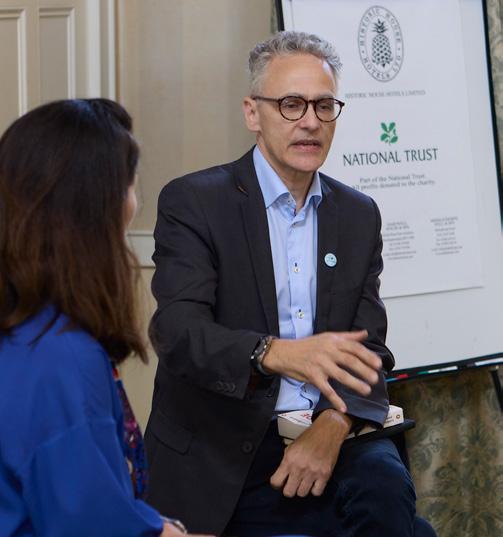
Effective government strategy is crucial to navigating and taking advantage of a permanent polycrisis. By leveraging strategic responses, governments can enhance their resilience and adapt to the complex challenges posed by interconnected crises. The following case studies from South Africa, South Australia, and Thailand illustrate different approaches to strategic government responses.
South Africa has faced an intense and crisis-filled five years, dealing with COVID-19, increased cost of living, power production shortages, and social unrest in major cities. This situation is likened to living on a sleeping tiger that occasionally wakes, requiring urgent and adept responses. To effectively respond to such polycrisis, the state needs specific capabilities:
1. The Level of Government and Corresponding Roles:
• Strong Central Government: Essential to marshal a crisis effectively.
• Local Capabilities and Resilience: Crucial for immediate, on-the-ground response.
• Global Coordination and Collaboration: Necessary for comprehensive crisis management and resource sharing.
2. Time:
• Short-Term: Immediate actions and responses to stabilize the situation.
• Long-Term: Sustainable strategies to build resilience and prevent future crises.
Reducing inequality can be one of governments’ most significant actions to enhance their capacity. Furthermore, innovation and creativity are crucial in the aftermath of a crisis to rebuild and improve resilience.
Despite being a small state and a price taker, South Australia leverages its agility to address today’s polycrisis proactively. The state’s mission focuses on positioning itself as a leader in the green transition, becoming a partner of choice globally, and building local talent. By capitalizing on the green transition and demonstrating global citizenship, South Australia aims to establish itself as a forward-thinking state, adept at navigating and benefiting from emerging opportunities.
In Thailand, there was a significant disconnect between the optimistic vision of the capital and the realities faced in the regions. This disconnect was compounded by a governance challenge where the group responsible for accountability differed from those with knowledge and expertise. The problems included siloed operations and a lack of consultation with local and provincial areas.
The solution involved creating an interministerial committee to foster coordination and facilitate conversations with local communities and businesses. This approach led to more regionspecific interventions and targets for climate response.
These case studies highlight the importance of strategic, flexible, and inclusive government responses to effectively manage and leverage the opportunities presented by a permanent polycrisis.
APOLITICAL RESOURCES
• Playing the Long Game: Mapping Long-term Thinking in Government
• Reimagining Government Episode 5: National Government 2.0
• Why Strategic Thinking in Government Matters
We are currently in a period of polycrisis where the quality of public service will determine outcomes, including life and death. The best way to survive a crisis is to have a strong management team and robust systems in place beforehand.
Governments do not rise to the level of their aspirations during a crisis; instead, they fall to the level of their systems and people. This reality highlights the importance of preparation and focusing on fundamental processes, technologies, and systems to ensure resilience.
Leaders must anticipate potential issues and prepare for them. This preparation involves having sound procedures, systems, and platforms, using red teams and data to mitigate risks, and fostering essential qualities such as resilience, trust, agility, foresight, clarity, and scalability. Ensuring reliable communication channels and investing in training for daily operations are also crucial.
Four key problems that get in the way of an empowered public service are:
1. Risk management: It is everyone’s job, but no one’s priority.
2. Coordination: A gap exists where there should be leadership.
3. Resources: These are too focused on creating good news today, not stopping bad news tomorrow.
4. Scrutiny: This is often used to teach lessons rather than improve outcomes.
Three lines of defense to these problems include:
1. Day-to-day operations: These should be led by departments with clear contingency plans.
2. Central leadership: The focus should be on preparation and testing.
3. Independent scrutiny: Parliament should oversee spending and overall effectiveness.
Organizations are social technologies designed to solve problems; globally, we organize based on shared beliefs about human nature. Do we view humans as selfish and dangerous (as shown in the classic work “Lord of the Flies”) or as cooperative (as in the real-life case study of the Tonga Castaways)?
The Danish Design Center experimented with different organizational and leadership principles; this included allowing everyone to choose their leaders and work areas and make decisions based on the strength of arguments rather than hierarchy. Though initially challenging, this led to positive outcomes and showed that different models are possible.
Successful organizations follow a model of longterm vision, rapid experimentation, and one guiding star, viewing human potential with logical optimism. In a low-trust environment driven by a lack of agency and emotional behavior, it is crucial to have faith in humanity, be kind, and recognize people’s efforts.
These insights highlight the importance of equipping public servants with the necessary skills and tools, fostering an environment of trust, and focusing on both immediate and long-term strategic planning to navigate and thrive in a permanent polycrisis.
• Empowering innovation: Collaborative strategies in Chile’s public sector
• People Management for Public Servants
• The crucial role of professional development


On the final day of the retreat, participants visited Makerversity to help make all the concepts and ideas explored on the previous days tangible and tactile. The UK’s Policy Lab and GO Science Futures team walked everyone through four demonstrations of practical tools and approaches for policy and program development.
Driver mapping takes the forces for change identified by a group and maps them against certainty and importance for your policy area. GO-Science’s Trend Deck was used and mapped on the corresponding 2x2 grid.
Each quadrant suggests a different next step:
• Less important and more certain: park these drivers.
• Less important and more uncertain: track as they may become more significant over time.
• More important and more certain: prioritize and act upon them now.
• More important and more uncertain: subject of further research or used in a scenario process.

The Three Horizons tool provides a framework for thinking about the future while recognizing the deep uncertainty and discomfort people may experience when considering an unknown future. The tool helps to frame a constructive conversation where both the present and its limitations and different potential futures can be examined and linked. The tool lets people co-create the bridge from today to a preferred tomorrow. Again, GO-Science’s Trend Deck was used and mapped against which of the three horizons it aligned most with on the graph.
• Horizon 1: The trend is lessening over time
• Horizon 2: The trend is transitioning.
• Horizon 3: The trend is emerging and barely visible today but will be important in the future.
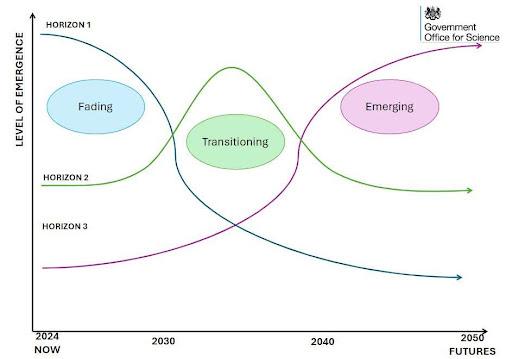
This approach uses various materials, from fabric and woodwork to 3D-printed objects, to make abstract concepts tangible. Making physical objects helps ideas come to life for everyone, from policymakers and domain experts to people with lived experience. In this session, Policy Lab shared examples of this approach to materiality from projects exploring the future of:
• decision-making for the water system in twenty years’ time;
• language learning provision, co-designed with refugees it is designed to support; and
• maritime regulation, given the advent of autonomous shipping.
Attendees could see how making material objects can help make ideas around challenges, speculative policy interventions, or future outcomes more tangible. Combining physical artifacts with rich narratives built from other forms of research allows stakeholders to see, hear, and feel possible transformations. Such material speculations act as probes to provoke conversation, sharing visions for futures that may or may not be desirable; a conversation can be merged with outputs from more analytical approaches to design more effective policy.
Collective Intelligence is the emergent knowledge on any given topic that lies latent across diverse groups of officials, experts, and members of the public. This session focused on demonstrating the use of the open-source software Pol.is to capture this collective intelligence; this software has yielded benefits to policymakers ranging from validating existing ideas with large numbers of people to revealing areas of consensus amongst diverse groups and generating new policy ideas. Participants played with the platform, which helped people see how to apply this tool - one of many for capturing collective intelligence - in their work.

The retreat concluded with a look to next year. Participants were asked what they hoped to see at next year’s retreat, and their reflections are captured in the word cloud below.
The mounting polycrisis brings a sense of foreboding and pessimism as the interlocking forces are hindering countries and the global community’s ability to rise to the challenges of our time. Despite this mounting pessimism, there remained optimism for the future and a feeling that we will make it through this period of significant upheaval to a better future on the other side. By bringing together such a diverse and brilliant group of people, the retreat served to help bolster this optimism. People left with a deep sense of joy, gratitude, and community.
We look forward to bringing everyone together again in 2025.
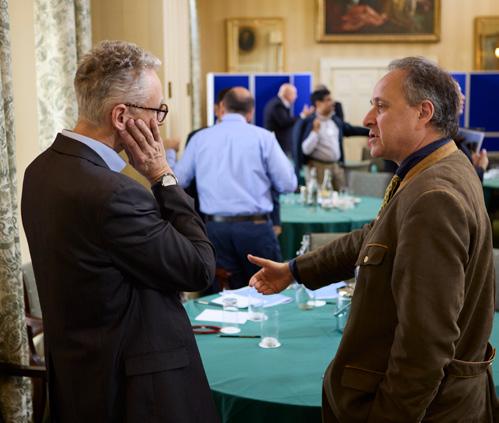
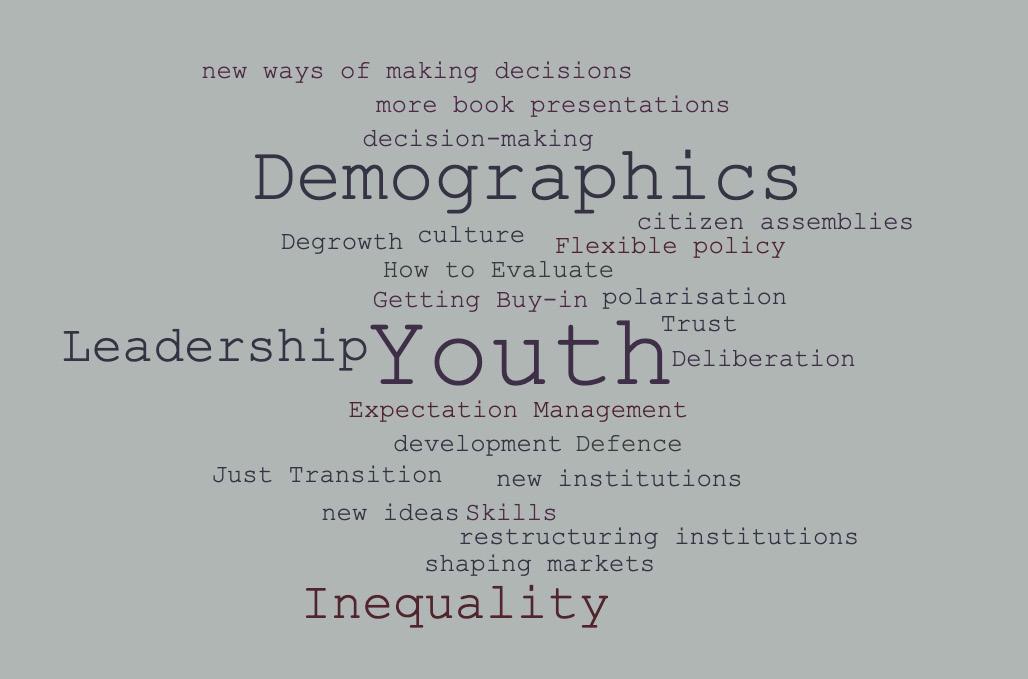
Rabih Abouchakra
Executive Director, Office of Development Affairs, UAE Presidential Court, UAE / Canada
Stephen Bennett
Head, Policy Lab, United Kingdom
Brenton Caffin
Executive Director, Strategy & Policy, Department of the Premier and Cabinet, South Australia, Australia
Vincent Chriqui
Mayor, City of Bourgoin-Jallieu, France
Catherine Day
Deputy Director, Cabinet Office, United Kingdom
Bernie Djonoputro
CEO, Rebana Metropolitan Authority, Indonesia
Jeanette Kwek
Head, Centre for Strategic Futures, Singapore
Eili Lepik
Director, Green Transition Department, Ministry of Climate, Estonia
Saul Musker
Director for Strategy and Delivery Support, Presidency, Republic of South Africa
Lars Østergaard
Deputy Head of Division, Ministry of Finance, Denmark
Taki Sarantakis
President, Canada School of Public Service, Canada
Sewon Sunwoo
Deputy Director, Prime Minister’s Office, Republic of Korea
Yuki Takishima
Director, Cabinet Office, Japan
Tom Wells
Deputy Director, Emtech, Futures and Projects, Government Office for Science, United Kingdom
Josée Touchette
Executive Director, Organisation for Economic Co-operation and Development, Canada
Christian Bason
PhD, Co-founder, Transition Collective, Denmark
Rupak Chattopadhyay
President and Chief Executive Officer, Forum of Federations, Canada
Wendy Hall
Professor, University of Southampton, United Kingdom
David Halpern
President, Behavioural Insights Team, United Kingdom
Gerard Hargreaves
Consultant, GNH Executive Development, United Kingdom
Aaron Maniam
Fellow of Practice and Director, Digital Transformation Education Programme, Blavatnik School of Government, University of Oxford, United Kingdom / Singapore
Antonella Mei-Pochtler Vice-Chairwoman, Pochtler Industrieholding GmbH, Austria / Italy
Robin Niblett
Distinguished Fellow, Chatham House, United Kingdom
Geoff Mulgan Professor, University College London, United Kingdom
Darren Swanson Director and President, Novel Futures Corporation, Canada
Yaqub Yousuf
Chief Strategy and Brand Ideation Officer, United Kingdom
Mohamed Al Shamsi
Analyst, Office of Development Affairs, UAE Presidential Court, United Arab Emirates
Derek Alton
Community Insights Lead, Apolitical, United Kingdom / Canada
Kateryna Anselmi
Program Manager, Peace and Justice, Salzburg Global Seminar, Austria / Ukraine
Andrew Archer
Director, Office of Development Affairs, UAE Presidential Court, United Arab Emirates / USA
Charles Ehrlich
Director, Peace and Justice, Salzburg Global Seminar, Austria
Roula Rbeiz
Principal, Office of Development Affairs, UAE Presidential Court, Lebanon
Robyn Scott
Co-Founder and CEO, Apolitical, United Kingdom
Pooja Warier
Chief Partnerships Officer, Apolitical, United Kingdom / India
Lisa Witter
CEO and Co-Founder, Apolitical, Germany / USA
* positions correct at time of program (May 2024)
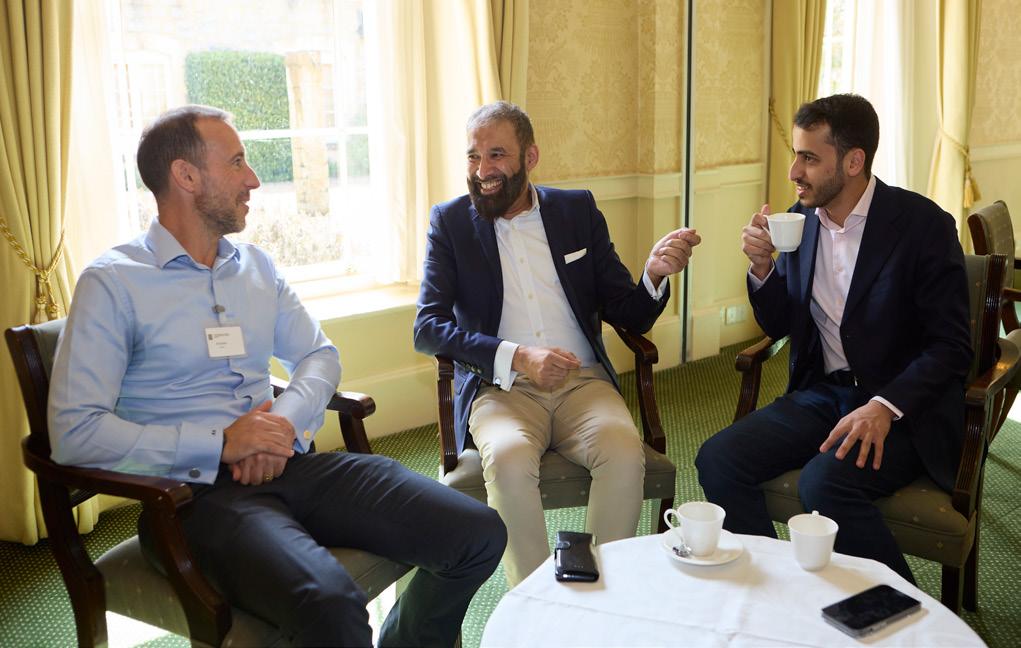
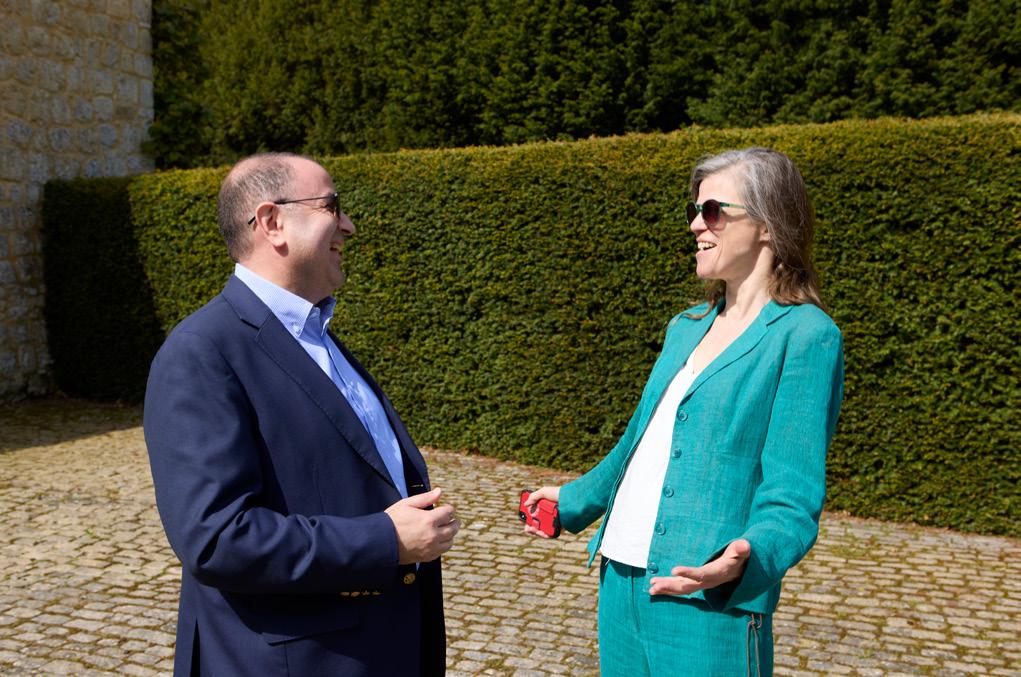
Derek Alton has spent the last 15 years studying and exploring how to build better governments that can build better societies. Before joining Apolitical, Derek worked at the Centre of the Government of Canada’s work on digital transformation. Through this work, he has helped develop global communities focused on connecting public servants to each other with the goal of fostering sharing and collaboration.
For more information contact: Charles E. Ehrlich, Director, Peace and Justice cehrlich@SalzburgGlobal.org Kateryna Anselmi, Program Manager, Peace and Justice kanselmi@SalzburgGlobal.org
For more information visit: Series SalzburgGlobal.org/go/PublicSector Program SalzburgGlobal.org/go/847-01
Salzburg Global Seminar is an independent non-profit organization founded in 1947 to challenge current and future leaders to shape a better world.
Having worked with more than 40,000 Fellows worldwide, we have been at the forefront of global movements for change for more than 75 years, with significant impact on individuals, institutions, and systems.
Whether at our home of Schloss Leopoldskron, online, or in locations around the world, our programs are inclusive, interdisciplinary, international and intergenerational and are designed to provide a global lab for innovation and transformation.
We convene cohorts of passionate changemakers across diverse fields and backgrounds. We develop and curate networks that support collaboration, share innovations with new audiences and expand our impact by working with partners around the globe.
We are supported by a combination of institutional partnerships, generous individual donations and revenue generated from our social enterprise, Hotel Schloss Leopoldskron.
The Public Sector Strategy Network equips governments to tackle complex challenges through improved foresight, innovation and implementation. Co-created with senior leaders from around the world, it is building a mutually-supportive coalition of individuals and institutions on the frontline of digital, financial and societal disruption, promoting effective public leadership and strategic communication. For more info. please visit: www.SalzburgGlobal.org